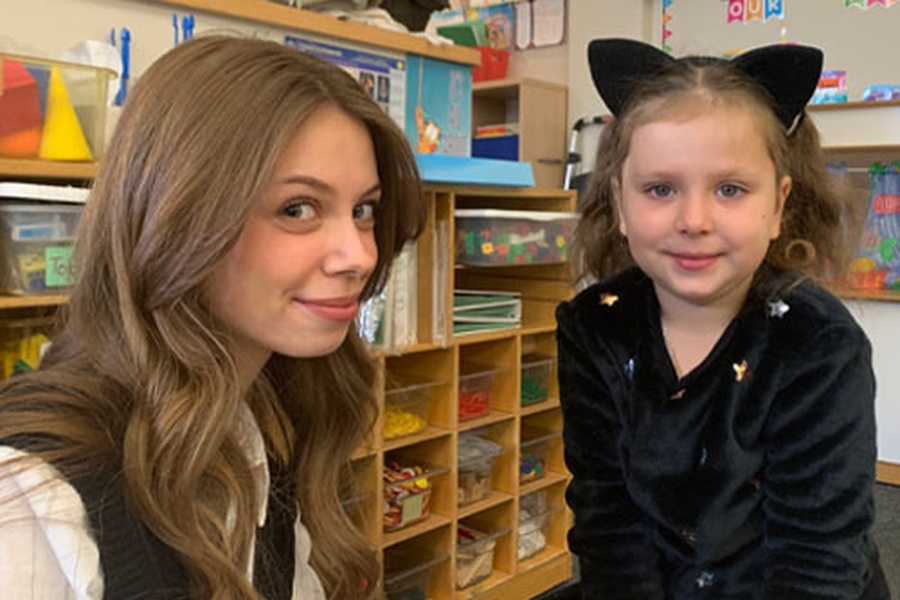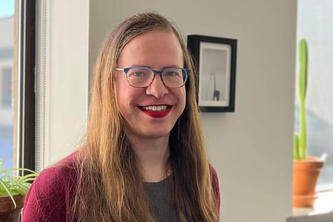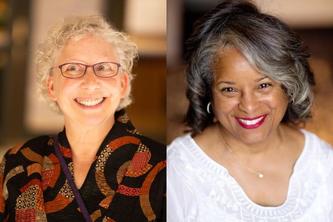
When Safia Dockter began writing and speaking about the atrocities of the Russian invasion of Ukraine earlier this year, it helped her process what was happening to the country where her mother was born and where she still has relatives. What she didn’t know then was how quickly her words would turn into action for one little girl.
Dockter, a University of Minnesota developmental psychology student, had co-written an article for Impact, the Institute on Community Integration’s long-running publication about issues important to people with intellectual and developmental disabilities (IDD). The article, “Transition in Times of Crisis,” discussed inequities in the way youth with disabilities come of age around the world, and how war and other crises exacerbate those disparities.
Shortly after the article was published this fall, Menolly Pier, a Carlson School of Management student who had seen the article, contacted Dockter and asked her if she might connect with Pier’s mother, Kelly, a kindergarten teacher at Lake Harriet Community School. Kelly Pier has a young student in her class this fall, Solomiia Kuchma, who fled Ukraine with her mother Nataliia. They are living with a host family in Minneapolis through a program for refugee families.
Solomiia doesn’t have IDD, but learning a new language, culture, and school environment after having fled the homeland where her father is still fighting has been understandably traumatic. So Dockter began going to Solomiia’s school two to three times per week to help her better understand the school customs and to simply be a friendly face she can speak to in her own language.
“I volunteered to come to the school and speak to the child, and that first day we talked for about three hours about her life in Ukraine and her family,” Dockter says. “Once I left the school, I knew this was something worth putting my time towards. This little girl needed emotional support in school from someone who felt familiar to her and spoke her language, understood her culture, and could be a friend.”
Dockter helped Solomiia understand the school’s snack time and recess procedures and the fire drill protocol, among other things, Kelly Pier says.
Gradually, Solomiia is becoming more comfortable with her new surroundings.
“Tag is a universal language, so she’s running around at recess,” Pier says. “We do a morning greeting and she is now going around and saying her classmates’ names. They have been making her feel welcome and students from other classes are doing that now, too. We teach that everyone needs to be welcomed and that while we are different, different is fun and different means we can learn new things from each other.”
Nataliia says her daughter is doing well, and they are enormously grateful to their host family, the school, and the community. Still, the horrors of war and her fears for her husband and family back home are ever present.
“Solomiia overheard a lot of conversations when we escaped, and so she is naturally afraid of what is happening,” she says. “I explained that her father is trying to protect our home, but it is very hard for her and she cries when we separate for the day. In this classroom, her emotional development is being looked after, and I just want to thank everyone so much.”
Dockter, meanwhile, is developing a handbook for school personnel who work with displaced students from Ukraine. She aims to help them understand and differentiate between responses that are simply cultural norms and those that are trauma related and require mental health treatment.
“Everyone has their own purpose during war,” she says. “Some are doctors, some are soldiers, and some provide other resources that they may have. Solomiia helped me find my purpose."





